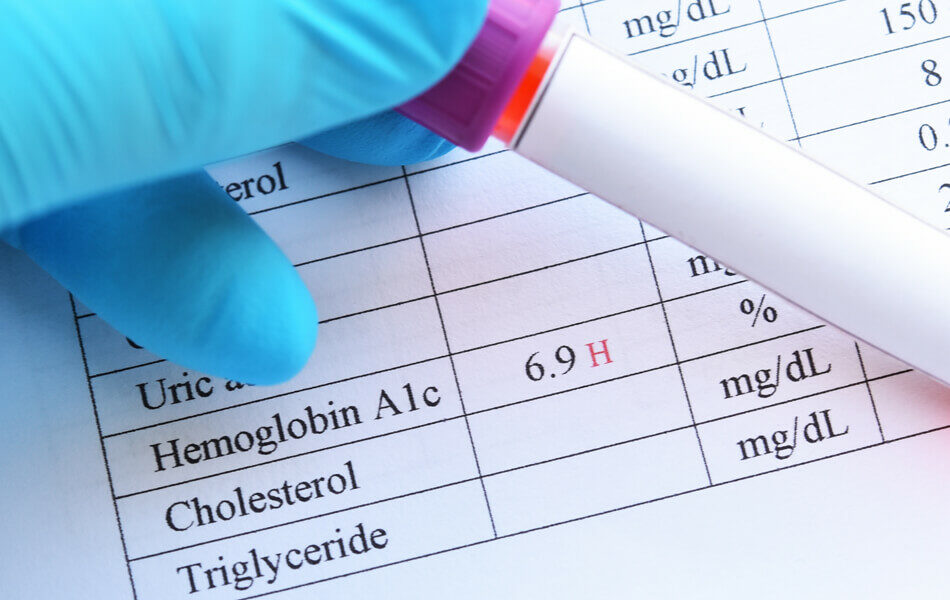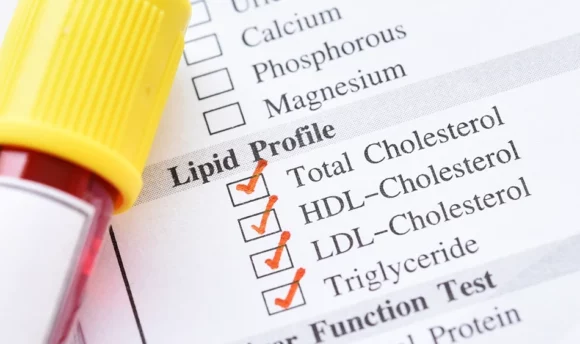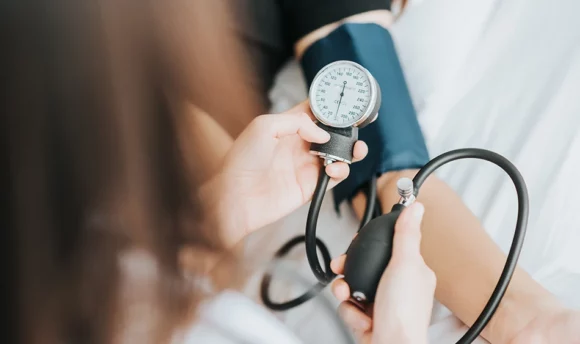How to Decrease Hemoglobin: 5 Proven Tips
Hemoglobin is an essential part of the red blood cells that deliver oxygen to all body parts. In this post, we discuss how to decrease hemoglobin naturally. Our team also covers the risks of high hemoglobin levels and answers your questions.

Hemoglobin is a protein found in your body’s red blood cells. It carries oxygen from the lungs to the rest of the body and returns carbon dioxide to the lungs.
The hemoglobin level in your blood can reveal important information about your health, such as whether you have anemia. High hemoglobin levels show your bone marrow produces too many red blood cells in your system, a condition called polycythemia vera (PV).
When hemoglobin levels are too high, it can cause problems with your health and lead to serious medical conditions such as heart failure or stroke.
In addition to being a sign of other underlying medical conditions, high hemoglobin levels may also be caused by dehydration or exposure to high altitudes.
Hemoglobin levels vary from person to person, and they can also change over time. It’s important to understand what hemoglobin is, how it’s measured, what normal values are, and how you can decrease it to avoid the risks associated with it.
This will help you understand whether your hemoglobin levels are within the normal range or if they need attention.
What Is Hemoglobin?
Hemoglobin is the protein that carries oxygen to the body’s cells. It makes your blood red and gives you that fresh, rosy glow.
It’s made up of 4 protein chains (called globins) and four iron atoms (called heme). These molecules in your blood carry oxygen from your lungs to other parts of your body through respiration.
The more hemoglobin you have in your bloodstream, the more oxygen is delivered effectively. However, some people naturally have higher levels than others. If hemoglobin gets too high, they can experience serious complications like organ damage or even death.
What should your hemoglobin be?
Age, gender, and general health influence your hemoglobin (HGB) level. Healthy HGB levels are as follows:
| Category | HGB levels in grams per decilitre (g/dL) |
| Infants | 11–18 |
| Young children | 11.5–16.5 |
| Teenagers | 10–15.5 |
| Adult men | 13–16.5 |
| Adult women | 12–16 |
| Pregnant women | 11–16 |
Certain conditions may affect these levels. It can also differ depending on healthcare, so double-check the reference range for yours. Hemoglobin counts may also vary by age in children, particularly in infants under 6 months.
Hemoglobin and hematocrit are typically measured as part of a complete blood count (a routine blood test) to aid in diagnosing medical conditions and learning more about a person’s health.
HGB levels of less than 13g/dL in men and levels less than 12g/dL in women who are not pregnant are considered low. A high hemoglobin level is linked to a high hematocrit level, defined as above 50% in men and above 45% in women.
How to Decrease Hemoglobin: 5 Tips From Our MD
Before trying to decrease hemoglobin on your own, consult your healthcare professional about what best suits you, which may include what we discussed here. Don’t substitute these tips for what your doctor has prescribed.
#1 Avoid foods rich in iron and iron supplements
Iron is a mineral found in many foods, including red meat, poultry, beans, and fortified cereals. If you eat a lot of these foods and don’t have an iron deficiency, you may be consuming too much iron, which may increase hemoglobin saturation levels above the normal range and be the cause of constipation.
In a healthy body, with a normal hemoglobin level and sufficient iron, the intestine reduces its absorption from food, drinks, and supplements to prevent its levels from rising too high.
The excess iron is stored in organs like the liver, pancreas, and heart. Too much consumption of iron can lead to life-threatening conditions, such as liver disease, heart problems, hemochromatosis, and diabetes.
Having the right amount of iron is essential for normal levels of hemoglobin. If you’re concerned about your iron consumption, talk to your doctor. They may suggest you have your body’s iron level tested and can help you decide on the amount of iron supplement your body needs.
#2 Drink enough fluids
Dehydration is a common cause of HGB. This is because plasma – the liquid part of the blood – is decreased. Drinking enough water helps keep your body hydrated and your blood thin.
Research shows that acute dehydration can raise hemoglobin levels by 10–15%. Another study found that men who consumed one cup of plain water daily had lower hemoglobin of -0.04%.
If you aren’t getting enough fluids, the concentration of red blood cells in your blood increases, making the blood look darker – which is why many people with dehydration have an increased hemoglobin count.
If you’re dehydrated, drinking more water can help even out the blood concentration in the bloodstream. This will also help lower your hemoglobin level back to normal. As a general guide, aim for about 8–16 cups of fluids every day for optimal blood flow.
#3 Quit smoking
Smokers and heavy alcohol drinkers have higher blood hemoglobin concentrations than non-smokers and abstainers.
Smoking affects your body’s ability to use oxygen properly. This is because cigarettes contain carbon monoxide, which increases carboxyhemoglobin concentration in the bloodstream, causing low blood oxygen levels.
Nicotine in cigarettes also constricts the blood vessels, reducing the ability to transport oxygen-rich blood throughout your body effectively. Medical professionals advise people who smoke and experience elevated hemoglobin levels to quit the habit to lower their levels.
#4 Exercise regularly
While this may not directly lower your hemoglobin level per se, it helps regulate them by increasing blood flow throughout the body so that oxygen-rich blood can reach every cell, which results in higher energy levels overall.
Having an exercise routine also helps with weight loss, which means less stress on other systems like the cardiovascular system. Most studies suggest that moderate to vigorous exercise of at least 75–150 minutes throughout the week is most beneficial.
Try running as this full-body workout is great cardio. You don’t have to run for 75 or 150 minutes straight. Start with 20 minutes and let your body adapt.
Walking, swimming, dancing, and tennis are acceptable forms of exercise. Swimming, as well as other cardio-based workouts, is also beneficial for weight loss. Any activity that raises your heart rate is great for your health.
#5 Avoid consuming too much vitamin C
While vitamin C has many health benefits, it may cause unwanted side effects when taken in large amounts. People with high hemoglobin levels should avoid consuming too much of this vitamin as it increases the absorption of iron.
Fruits and vegetables usually contain too little vitamin C to significantly affect iron absorption. They also have various nutrients that are essential in a healthy diet.
Consult a qualified healthcare professional to know how much vitamin C you should consume daily.
Risks of High Hemoglobin Level
Elevated hemoglobin increases the risk of developing clots in the veins (deep vein thrombosis). If these clots break off and travel through the bloodstream, they can block smaller arteries in other body parts. This is called a pulmonary embolism (PE).
HGB may also cause complications such as an enlarged spleen, iron deficiency, blood pressure, heart failure, and an increased risk of stroke.
FAQs
High hemoglobin count is defined differently according to different medical practices. It’s generally defined as any level exceeding 18.5g/dL for men and 16.5g/dL for women.
Dehydration has been linked to HGB. So, drinking water hydrates your body and thins your blood, lowering hemoglobin. Also, water increases your blood volume. This can cause an increase in the hematocrit level and a decrease in the hemoglobin level.
Although diabetes is associated with low hemoglobin, researchers have recently encountered a higher hemoglobin level of 18.8g/dL in people with type 1 diabetes, concluding that hemoglobin levels may be higher in individuals with diabetes than in the general population.
A Word From Our MD
Although elevated hemoglobin rarely causes symptoms, it can lead to complications such as blood clots. It’s usually an indicator of an illness, and it can occur with heart disease, polycythemia vera, cancer, lung, digestive, or kidney disease.
Dehydration, smoking, high altitudes, and health conditions such as kidney disease, heart failure, or liver cancer can cause hemoglobin to rise.
Treatment is usually necessary for the underlying cause, and in some instances, treatment of the high count is also paramount. However, to keep your hemoglobin levels more stable, consider exercising at least 3 times a week and eating a healthy diet. At first, try running 2 miles a day or just walking around your neighborhood every day.
If a medical condition is causing an increase in your hemoglobin, your qualified healthcare professional may recommend a procedure or medication to lower it.
A blood test can determine hemoglobin levels. If your blood tests reveal any irregularities, make an appointment with a qualified healthcare professional to get a diagnosis and treatment for the underlying problem.
Conclusion
If you have symptoms of abnormal HGB such as headaches, dizziness, bleeding, or you’re pregnant, your doctor may advise you to take an HGB test.
Early detection of abnormal HGB levels and diagnosis of the cause increase your chances of successful treatment. Seek professional medical advice as soon as possible to avoid the risks associated with it.
If you have high hemoglobin levels, making certain lifestyle changes, like quitting smoking, drinking enough water, and exercising, may help reduce your risk of developing serious health complications.

















































 Select your language:
Select your language: 








